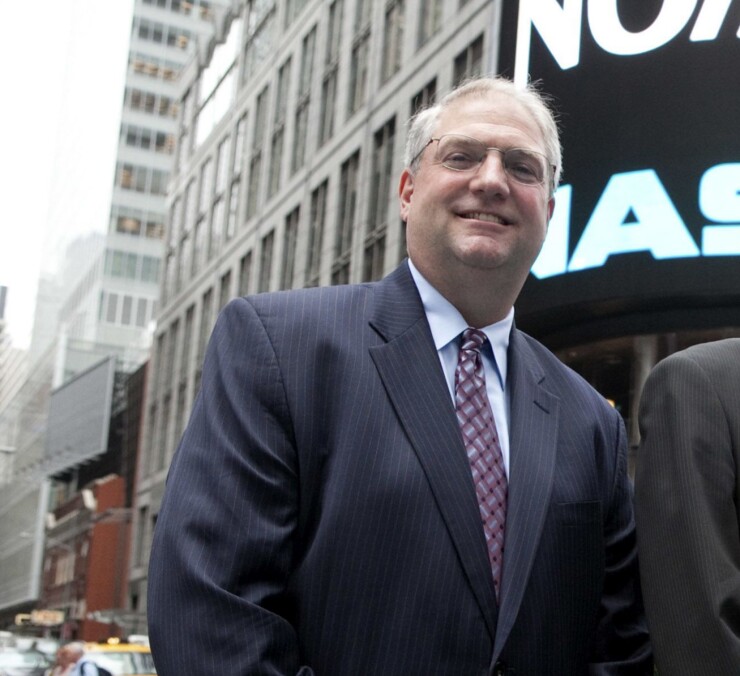John Jacobs is excited about the future.
His job is to find solutions to the problems plaguing the financial industry, and he thinks there is a lot to fix. But he also sees unprecedented change happening now.
In his nearly 40 years of industry experience, the longtime Nasdaq executive who now serves as executive director of
“There are things going on right now and have been over the past 20 months that are going to paradigm shift financial services,” Jacobs said. “I’ve been in this business nearly 40 years, and I can see it.”
Jacobs has done a lot of talking about the future this week as the center hosts the
Launched in the immediate aftermath of the 2008 economic crash, Jacobs said the center has always worked to bridge gaps and drive discussion devoid of an agenda. The people who power it are also well-accustomed to bringing policymakers and industry leaders together amid tumult.
“When the center started, the industry was so focused on not being the next Lehman Brothers and the regulators were so focused on not letting the financial market completely die and melt down that nobody was talking about anything,” Jacobs said. “We need to keep the conversation going. The more educated investors and traders are in retail, the better, and the more that the market participants keep investors front-and-center the better.”
For advisors, Jacobs said, the market has seen significant growth despite the circumstances. He notes the shift from wholesalers to much larger digital distribution — as well as RIAs and financial advisors being armed with powerful new tools — as some of the catalysts for that growth.
“Segments of this industry have thrived in this, and that's a paradigm shift that is absolutely here to stay,” he said. “Moving forward, financial advisors will connect with their clients in more efficient, effective and richer ways.”
Jacobs said the two hottest topics at this year’s conference are ESG and cryptocurrencies. Those issues took center stage when
On the topic of digital assets, Jacobs remains stunned by blockchain’s growth and growing applications. He said beyond the realm of financial services, every global industry is trying to figure out how to use blockchain as part of its infrastructure.
He adds that crypto will continue to present a challenge to regulators, advisors and consumers as its advancement remains several steps ahead of anything he’s ever seen.
“Think about the internet. As fast as it was, it was around for decades before it got commercialized and changed. Same of mobile phones, or anything else,” Jacobs said. “No other technology has moved faster than crypto and blockchain, and investors want to participate in this.”
ESG investing has an equally long list of to-dos, Jacobs said. The number of panels he’s led focused on the topic in the past year or so has climbed into the double digits.
He sees the primary concern of most investors as whether or not these products are truly what they present themselves to be. There’s also the balancing act of doing a good deeds with doing good business.
The problem of greenwashing and self-reporting also persists, and it's plaguing the issuers themselves. Jacobs said they struggle with disclosure because of the nonexistent guidelines, which in turn can create problems from advisors when bringing these products to clients.
“Investors want to access this. But they want to make sure that they're buying what they think they're buying, and they want to understand what they're buying,” he said. “And I’m not saying companies are trying to greenwash, but they may inadvertently greenwash if they don't have any kind of disclosure rules or guidelines to follow.”







